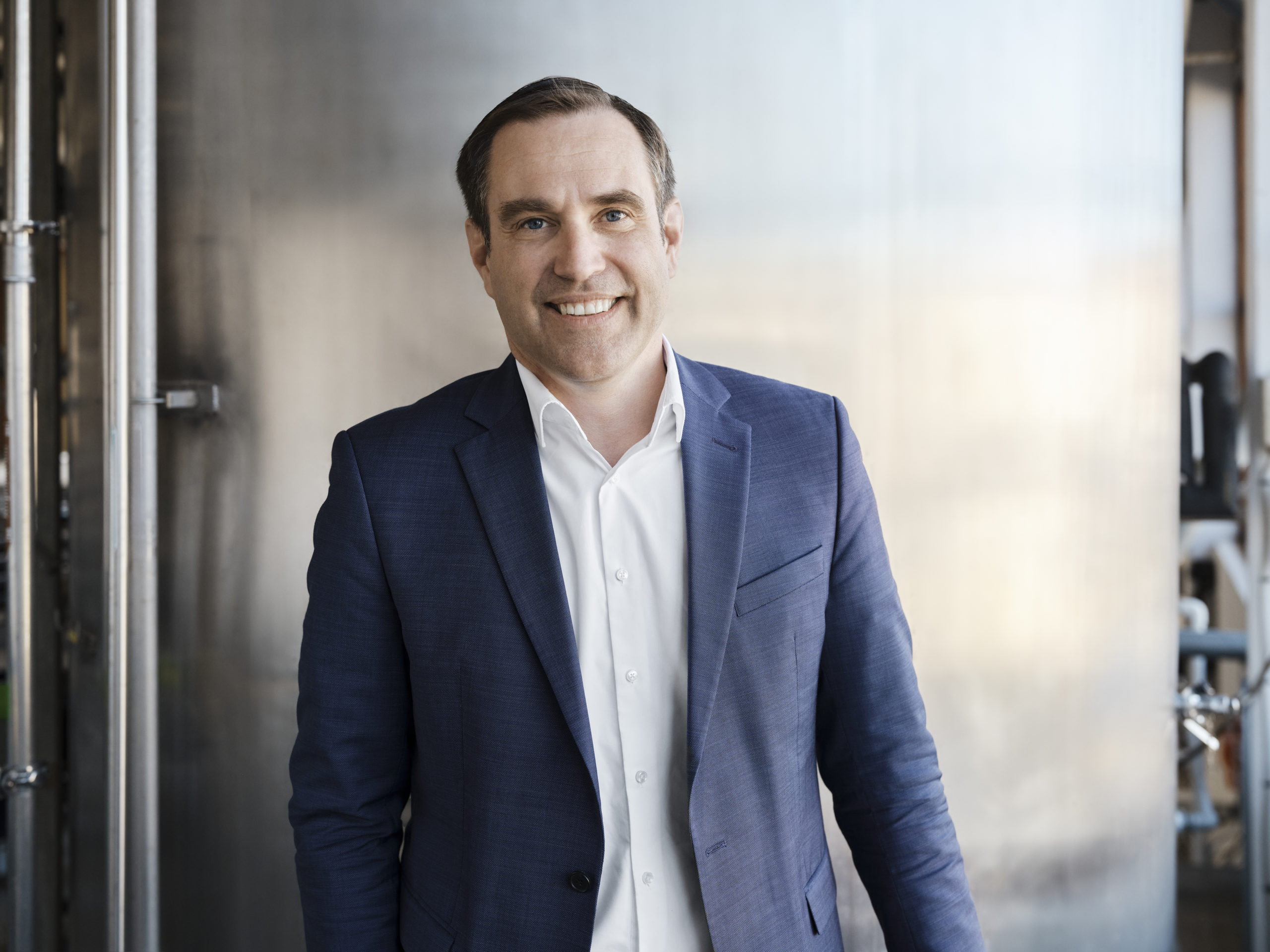Christian Matschke on Purpose-Driven leadership and cultural transformation in Pharma
We know that every breakthrough in life sciences is driven by passionate teams. Scaling a company isn’t just about funding and product development—it’s about building a strong, engaged team that can navigate growth, regulations, and innovation.
Through conversations with founders, HR leaders, and decision- makers, we explore the human side of scaling life sciences companies. How do you attract top talent, keep your startup spirit, and build a culture that drives both science and business forward? We help companies answer these questions every day, but this is about more than what we know—it’s about learning together and sharing real stories. Read our interview with Christian Matschke, Chief Operations Officer, Executive Vice President at Xellia Pharmaceuticals / a Novo Holdings company

Christian Matschke is an accomplished pharmaceutical executive with over 25 years of international leadership experience across companies such as Novartis-Sandoz, Altana (now Takeda), Menarini Berlin Chemie, and currently Xellia Pharmaceuticals, a portfolio company of Novo Holdings A/S. Xellia Pharmaceuticals manufactures and commercializes essential anti-effective active pharmaceutical ingredients (APIs) for serious and often life-threatening conditions.
Throughout his career, Christian has held Senior leadership roles in Operations including Site Head roles, Executive Board Member roles and now Chief Operating Officer. In addition to his corporate responsibilities, Christian holds influential positions in several industry associations, where he contributes to shaping the future of pharmaceutical manufacturing and healthcare policy.
He brings deep expertise in leading multicultural teams across geographies and is a passionate advocate for diversity, transparency, participation, and trust as foundations for organizational performance and sustainable transformation.
Christian, you’ve led pharmaceutical operations globally. What role do people and culture play in creating a competitive advantage?
A huge one. If you want to accelerate in international competition, it starts with building diverse, aligned teams. Yes, it takes time and energy up front—because people come with different backgrounds, values, and expectations—but once the team is aligned and relationships are strong, you move faster. And that’s your real competitive edge: speed built on trust.
I define diversity very broadly: professional experience, education, life stories, international exposure, gender, religion. I’ve had exceptional experiences with highly diverse teams—whether in India, Poland, Germany, and now—Denmark—and believe diversity of thought and values is critical to performance.
What values and behaviors do you consider essential for leadership?
For me, it comes down to transparency, accountability, and purpose. When people have real clarity, when they’re genuinely invited to contribute, and when they understand the “why,” they deliver better—faster and with more ownership. That builds trust—and trust is a shy animal. It takes a long time to earn and just a moment to lose. But once it’s there, it creates a strong foundation that works across cultures.
Leaders must also want to develop people without fear or envy. You need to help others grow, even if that means they might outshine you. Envy is rarely discussed, but it’s one of the most destructive forces in organizations.
And finally, you have to really like people —it sounds simple, but it means staying open to different perspectives, listening deeply, and caring about others’ development.
How would you describe your leadership style?
It’s performance-oriented, participative, and strongly relationship-based. I structure things clearly and push for results, but I also invest in mentoring and empowering others. That’s the only way to build something sustainable. It requires humility, which is hard to come by these days. Leaders need to be able to step back, let go of ego, and give space to others. That’s not weakness— it’s maturity. And it makes teams faster and stronger.

You’ve worked closely with boards and investors. How do you connect your leadership style with their expectations?
Most investors speak the language of numbers—it’s a universal language. So yes, you need to deliver. But performance and people leadership aren’t contradictions. In fact, I’ve seen that open, participatory cultures improve productivity, speed, and quality.
It’s about creating a space where ideas can be shared, mistakes can be discussed, and the best solution wins. That’s how you innovate and stay competitive.
To align with investors, I invest in personal relationships and open conversations. That helps bridge the gap between boardroom expectations and frontline reality. And it shows that employees—also those without degrees and diplomas—have a deep understanding of economic value when they’re trusted and engaged.
What’s your view on corporate culture and its role in transformation?
Culture is everything. But it can’t be changed through posters or slogans. Culture only changes through behavior—when people show up with integrity, bring their full selves, and actively live the values.
It takes time and trust from leadership to build that kind of culture. But when you do, it enables true transformation. You improve processes, you cut waste, you deliver higher quality—and you do it while bringing people along.
How do you balance economic pressure with people-centric leadership?
It’s a balancing act, no doubt. But you don’t get sustainable cost improvements through pressure alone. You get them through engagement, critical discussion, and trust. That’s how you uncover smarter, leaner ways of doing things—whether it’s increasing productivity on a packaging line or optimizing quality control.
You also need to understand that people’s concerns and fears are real. Change is constant, and not everyone embraces it. That’s why transparency, participation, and clear communication matter. You have to watch closely: who is stepping up, who is hesitant? And then you support and empower the right people.
Culture is everything. But it can’t be changed through posters or slogans. Culture only changes through behavior
What role do you see life science companies playing beyond their own walls?
Life Science companies are a vital part of society. We see that everyday through our portfolio of several critical medicines. And we have a responsibility to engage in broader social and political dialogues. Look at Europe’s supply chain challenges—we won’t solve them with cost-cutting alone. We need collaboration between companies, policymakers, and communities.
What’s your final advice to leaders in today’s biotech and pharma landscape?
Lead with clarity, empathy, and courage. Build trust. Develop others. Stay humble.
And remember: culture isn’t soft. It’s a hard factor for success. If you get it right, performance will follow.
Interview by Annett Zippel
 Annett specializes in executive search and leadership advisory within the life sciences industry. She works with biotech, pharmaceutical, and healthcare companies to build strong leadership teams that drive innovation and growth. With a deep understanding of industry dynamics, she helps organizations navigate change, align talent with strategy, and foster high-performing teams. Passionate about connecting people and ideas, Annett is committed to shaping the future of life sciences through impactful leadership.
Annett specializes in executive search and leadership advisory within the life sciences industry. She works with biotech, pharmaceutical, and healthcare companies to build strong leadership teams that drive innovation and growth. With a deep understanding of industry dynamics, she helps organizations navigate change, align talent with strategy, and foster high-performing teams. Passionate about connecting people and ideas, Annett is committed to shaping the future of life sciences through impactful leadership.




